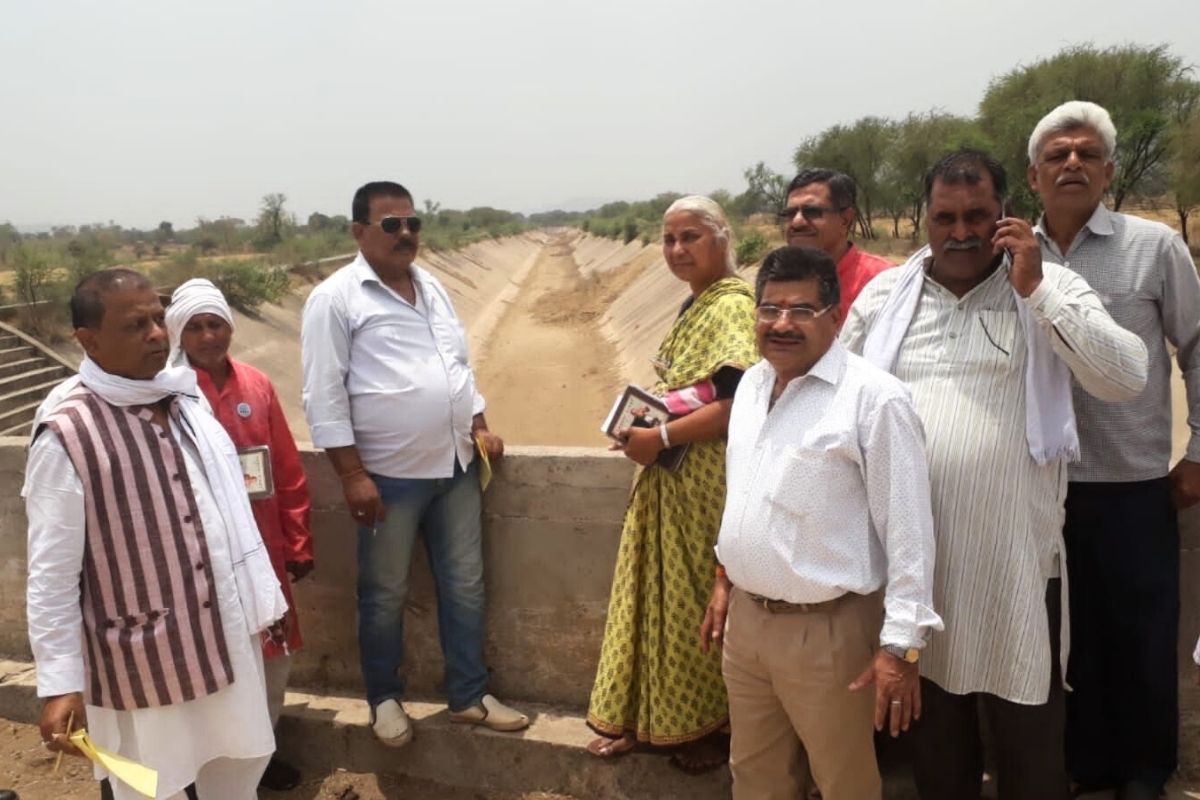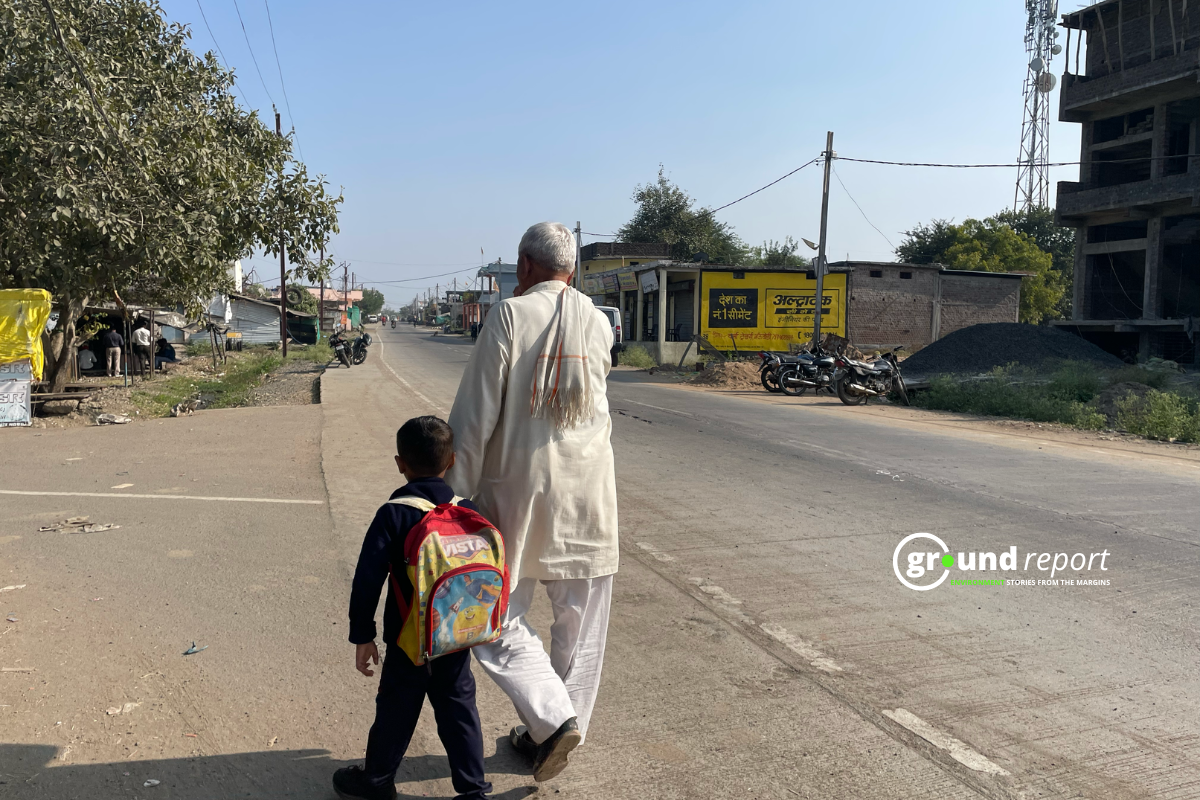For almost 20 years, there were no government buses plying on the roads of Madhya Pradesh. However, the state government has finally issued a new transport policy. The absence of public bus transport left the residents of the state struggling, as they were forced to bear the brunt of arbitrary fares and limited rural connectivity. Although efforts were made in this direction several times before by the governments of Shivraj Singh, they were not successful on the ground. Now, the government has introduced a new transport policy based on the Public-Private Partnership (PPP) model.
What will the new transport plan offer?
The Madhya Pradesh cabinet made significant decisions regarding public transportation during its April 1st meeting. The government has approved the launch of the “CM Sugam Bus Seva” across the state, accompanied by major policy reforms. According to these changes, now the government will not purchase buses; instead, it will operate services through private operators under the PPP model.
These services will be managed through a newly established holding company. Additionally, the policy introduces IT systems to strengthen ticketing processes and prevent revenue loss. The plan also includes launching cargo services to benefit local merchants and traders.
The new policy establishes a district-level transport committee led by the District Collector and including MPs, MLAs, Mayors, Municipal Corporation officials, and departmental engineers. This committee will monitor bus operations and recommend changes to routes, stops, and schedules.
The Cabinet approved Rs 101.20 crore as seed capital to launch this transport service, along with the formation of a state-level holding company.
Currently, 20 cities in the state have (Special Purpose Vehicles) for public transport under the Companies Act, with 16 already operational. These companies will be consolidated into seven divisional companies, all supervised by a new holding company established under the Companies Act, 2013.
No public buses since 2005
History of public bus transport in Madhya Pradesh dates back to the establishment of the Madhya Pradesh State Road Transport Corporation (MPSRTC) in 1962. But in 2005, it was closed by the then government of Babu Lal Gaur. The reason behind the removal of this corporation was huge financial irregularities.
Due to this policy, the government was facing a loss of Rs 500 lakh every month. About 11,500 employees were affected by this decision and it was decided to close the corporation within two months and was decided to be replaced by a smaller body. Reportedly, the government suffered a loss of Rs 1,200 crore due to the closure of MPSRTC.
Before its closure, the corporation had appointed Madhya Pradesh Consultancy Organization Ltd (MPCON Ltd) to assess its operations. Despite this, the government began the process of shutting it down even before receiving the consultancy firm’s report. The decision by MPSRTC created a void in public transport, especially in rural areas.
MPSRTC operated around 500 buses from Bhopal, 400 from Indore and 300 from other cities. The closure of MPSRTC significantly reduced the connectivity of remote villages. Private bus operators focused on urban areas rather than rural areas, which gave them relatively higher profits. This change made transportation options for villagers unreliable and expensive.
Today Madhya Pradesh is among the country’s 5 states (Chhattisgarh, Jharkhand, Manipur, Puducherry) where state-owned buses do not run.
Impact of poor public transit
Lack of public transport options often leads to greater dependence on private vehicles such as motorcycles and cars. It can be understood in simple words that, on the road where one bus could carry 40 people, 20 motorcycles are running due to the absence of buses. This change increases carbon emissions and air pollution.
Recently released statistics by the Federation of Automobile Dealers Association (FADA) testify to these effects. Statistics show that there has been a good increase in the sales of private four-wheelers in Bhopal and the entire state during the last year. There has been an overall increase of 10.74 percent in sales.
An increase of 4 percent has been seen in the purchase of big vehicles in villages also. At the same time, purchase of commercial vehicles (buses and loading vehicles) has also increased by 7.38 percent. In March 2025 alone, there has been a huge growth of 43.30 percent in the sales of private four-wheelers, of which almost half were rural buyers. On the other hand, the sales of two-wheelers have also been quite high, and they have increased by about 10 percent in the entire financial year.
According to the C2ES (Centre for Climate and Energy Solutions) report, transportation is the largest contributor to global emissions by holding a 29 percent share. The shift from public transportation to private vehicles may worsen this environmental impact. Studies show that carbon emissions can be relatively low in areas with strong public transportation.
Without reliable public transportation in rural areas, families face serious economic challenges. People in villages need transportation to access jobs, schools, medical facilities, and other essential services. When public transportation is missing, people have fewer job options and worse access to healthcare.
Research from the Urban Institute in the U.S. shows how transportation problems affect health care. More than one in five adults who lack good public transportation miss medical care because they can’t get there. About 7% of rural adults aged 18-64 missed health care within a year due to transportation difficulties.
Many examples worldwide demonstrate how the absence of public transport severely impacts rural populations. Limited transportation can also disconnect rural poor people from government services and anti-poverty programmes.
Previous failed efforts
The Shivraj Singh Chauhan government in 2010 launched a transport scheme to improve rural transport, but these efforts met with limited success. Two years after this effort, the then Chief Secretary, Anthony De Sa amended the policy to increase the incentives given to bus operators.
These changes included online granting of permits and subsidizing the tax levied on 1,600 rural routes from Rs 120 to Rs 20 per seat. But despite all these efforts, bus operators showed only limited interest in it, and this effort also could not achieve the expected success.
Ultimately, the most likely option was seen to be the involvement of private operators and expansion of their transport services on unprofitable routes through the Viability Gap Funding (VGF) model to cover entire districts.
To work on this initiative, in 2022, the Rural Transport Credit (RTC) system was developed with the help of the Atal Bihari Institute of Good Governance. According to the credit system, the number of credit points the passengers traveled was given to the operator. A subsidy was also given to the operators on the basis of these credit points.
The project had 76 routes from tehsils to 546 villages. These routes covered a distance of 1,513 kilometres and benefitted approximately 4.70 lakh villagers. Additionally, 36 new permits were issued, and all vehicles were exempted from motor vehicle tax under this system.
This model of services was also experimented on a pilot basis in Vidisha, the constituency of former CM Shivraj Singh Chouhan, for six months from May 2022. This pilot project was successful, and plans were made to expand it to five more districts. According to reports , it was also suddenly closed after delays in payments to the transport department due to bureaucratic hurdles. Now, following a three-year gap and multiple failed attempts, the Mohan Yadav government has introduced a new transport policy.
New policy, new hope?
State-owned bus transport systems are crucial for ensuring equitable access to transportation in urban areas, serving as a backbone of public mobility for millions of individuals, particularly those from lower-income backgrounds who cannot afford personal vehicles. They provide a necessary alternative to private transport, facilitating access to jobs, education, and essential services. By concentrating on affordability, state-run bus services can reduce the financial burden on commuters, thereby promoting social inclusion and enhancing the overall quality of urban life. They also contribute to reduced congestion, improved air quality, and lower greenhouse gas emissions, which are vital considerations in the face of growing urbanization and environmental concerns.
Moreover, state ownership allows for better coordination and integration of bus services within the larger public transport framework. It enables the government to implement comprehensive policies that prioritize the public good, ensuring that the needs of commuters are met effectively. Public transport systems can also leverage public funding to keep fares low while investing in the necessary infrastructure and services. This potential for strategic planning and investment makes state-owned bus systems not only vital for daily commuters but also essential for creating sustainable urban environments where mobility is accessible, efficient, and environmentally responsible.
However, whether this latest effort made by the state government succeeds on the ground or gets shelved like previous efforts, it will become clear only in the future.
Support us to keep independent environmental journalism alive in India.
Keep Reading
‘Forever Chemicals’ found in all the world’s toilet paper
Trump shuts down staff helping families pay heating bills
Full list of words banned by Trump, including ‘Climate Change’
Oil companies seek Trump’s help to fight climate lawsuits & regulations
Follow Ground Report on X, Instagram and Facebook for environmental and underreported stories from the margins. Give us feedback on our email id greport2018@gmail.com.
Don’t forget to Subscribe to our weekly newsletter, Join our community on WhatsApp, and Follow our YouTube Channel








